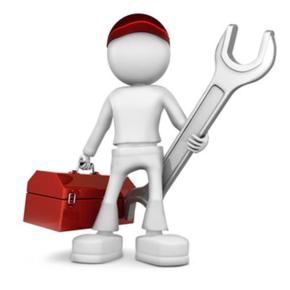Some Basic Tips on Van Maintenanceposted on 8 June 2014 | posted in TipsRegular van maintenance or preventative maintenance, if you will, can go a long way in making sure your van runs at optimal condition. For example, no one truly enjoys the trips to a mechanic because our brake pads are worn down to the rotors or drums and we have to spend more time and money to repair the brake system. What little time it takes to make sure we do the "regular" things to our vehicle, makes the time well spent. The pay me now or pay me later cliché, in this case, is never more true. The following tips will aid you in keeping your vehicle ready to take you wherever you have to go.  The air filter, when dirty, is a common problem when you notice your van has less power and is using more fuel. A simple check of the filter will give you an idea of how dirty it is. Mechanics will almost always agree that this simple step can go a long way in improving your vehicle’s performance. Air filters are instrumental in decreasing the amount of dirt, dust and other damaging contaminants going into the engine. Simply put, your vehicle runs less efficiently when the filter is clogged with dirt and grime. Filters should be replaced every 3,000 miles. Also, have the air filter changed when you have an oil change performed on the vehicle to save time or an extra trip to the mechanic. And while we’re talking about filters, the fuel filter is probably the most overlooked or forgotten item for regular checkups. Auto experts don’t understand why this happens but it does. Remember the van I just mentioned? I have had the fuel pumps and fuel filters checked regularly on that vehicle. I can honestly say I get approximately two more miles to the gallon when I calculate mpg/number of litres of fuel used after I have replaced a fuel filter. Whenever you happen to notice or think to yourself, "I sure am using more fuel lately", check the fuel filter. Regular replacement of the brake pads is also very important. Many expert mechanics will agree that all parts to the brake system are the most important safety features on an automobile. You must be able to stop your vehicle quickly and safely. All brake pads will wear out eventually. If you start hearing squealing like sounds or the feel of the pedal upon braking is "mushy", you need to consider that the brake pads are beginning to become worn out. The responsibility of the brake pads is to provide friction with the pad to make braking or stopping possible. Brake pads can be easily diagnosed for wear and tear with regular examinations. Onto your spark plugs. Many things can indicate problems and spark plug wire malfunction. There may be corrosion at the wires or connectors. Resistance can increase as the wires get older. The material encasing the wires may be shredding or wearing out. The first sign of trouble generally comes when you start noticing a missing or stuttering type action when the vehicle is operating. There’s a significant tugging like symptom that feels to you that your vehicle can’t get the energy to move. Always keep your spark plug wires clean. Always troubleshoot for wires that look worn out or are not properly applied to the spark plugs. Replacing your spark plug wires will mean efficient starting and less ignition type problems that can follow because of worn spark plug wires. Wash Me! Well maybe this one isn’t actually vehicle "maintenance" per se, but doesn’t a clean van make you feel better? Again, have you ever noticed your van seems to run smoother when she’s clean? Having the engine steam cleaned on a regular maintenance plan can also go a long way in extending the life of your engine. Engine cleaning will keep the corrosion and grime from building up on your spark plug wires too. It will help when you are looking over your engine for leaks, unplugged or loose wiring and keep the corrosion off your vehicle’s battery. While these aren’t the only "regular maintenance" tips available, you can always research your vehicle’s handbook for other ideas that can help extend its life and keep it running in optimal condition.
|
|
 £0
£0







